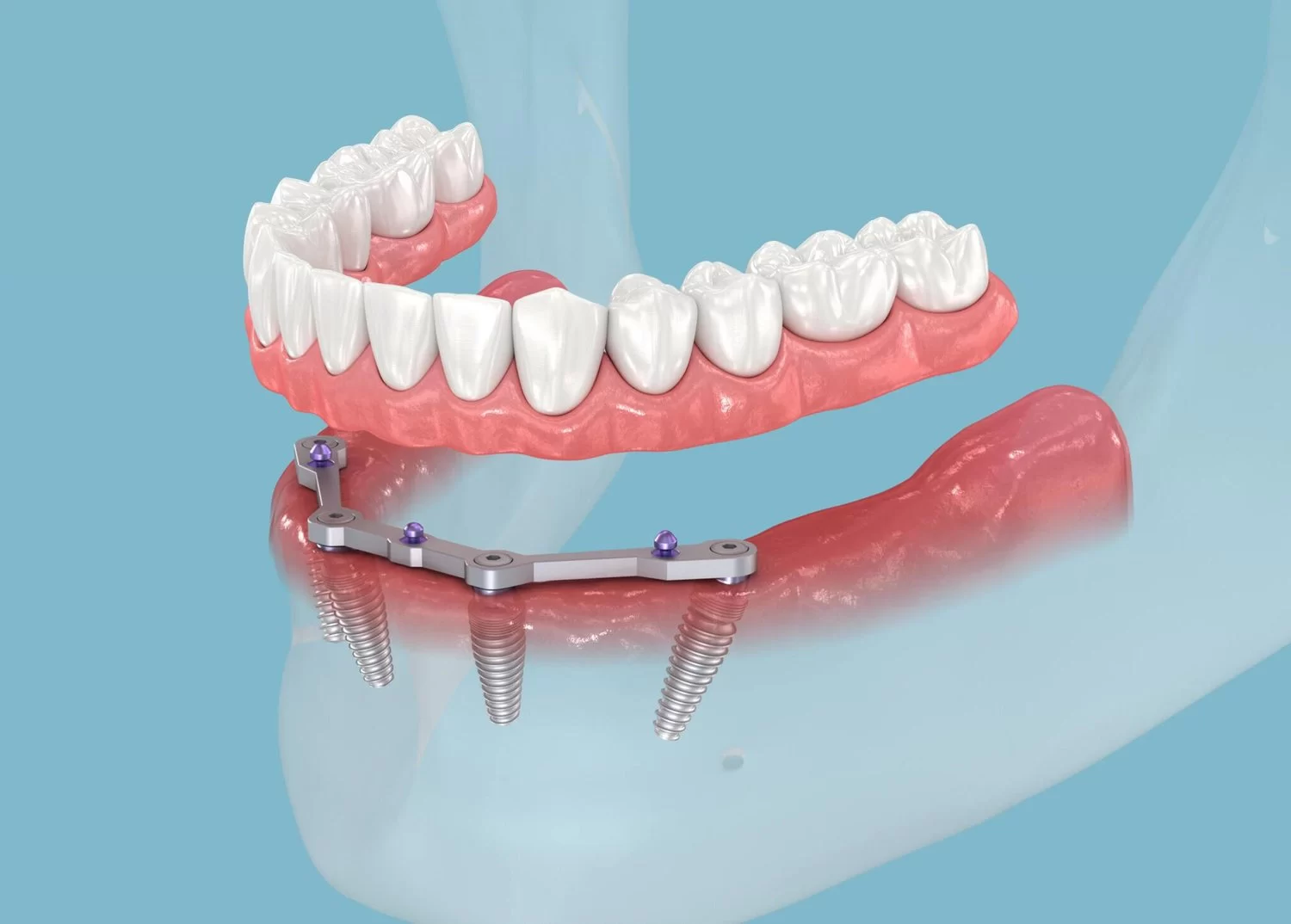
How Do Dental Implants Help with Tooth Loss? A Comprehensive Guide
- 1. Introduction to Dental Implants
- 2. Understanding Tooth Loss
- 3. Why Dental Implants Are the Best Solution for Tooth Loss
- 4. Benefits of Dental Implants
- 5. The Dental Implant Procedure
- 6. Who Are Ideal Candidates for Dental Implants?
- 7. Dental Implants vs. Other Tooth Replacement Options
- 8. Real-Life Case Study: Dental Implants
- 9. Post-Implant Care and Maintenance
- 10. Dentistry Toothtruth Recommendations
1. Introduction to Dental Implants
Dental implants are a revolutionary solution to tooth loss, providing a way to restore both the function and aesthetics of your smile. Unlike traditional dentures or bridges, implants are a permanent, sturdy replacement for missing teeth. This article will explain how dental implants help with tooth loss and provide a comprehensive guide to the procedure, benefits, and much more.
2. Understanding Tooth Loss
Tooth loss can occur for a variety of reasons, including decay, injury, aging, and gum disease. When a tooth is lost, it can affect not only your appearance but also your ability to eat, speak, and smile with confidence. Traditional solutions like dentures and bridges offer temporary fixes, but they don't always provide the stability or permanence needed for long-term oral health.
3. Why Dental Implants Are the Best Solution for Tooth Loss
Dental implants offer a more durable, natural-looking solution compared to other tooth replacement options. Unlike dentures, which can shift or require adhesives, dental implants are anchored directly into your jawbone, providing a stable base for replacement teeth. They also help maintain bone health, which can deteriorate after tooth loss.
The implant procedure mimics the natural root structure, allowing for a stronger, longer-lasting solution that helps preserve your jawbone. This is especially important as bone loss can lead to changes in facial structure and the potential loss of additional teeth.
4. Benefits of Dental Implants
Dental implants come with numerous benefits, making them the preferred choice for many people experiencing tooth loss. Some of the key advantages include:
- Improved Appearance: Dental implants look and feel like natural teeth, restoring your smile and confidence.
- Long-Term Durability: With proper care, implants can last a lifetime, offering a permanent solution to missing teeth.
- Better Functionality: Implants restore normal chewing and speaking function, making it easier to eat and talk without discomfort.
- Preserved Jawbone: By integrating with the jawbone, implants help prevent bone loss and maintain the natural shape of your face.
- Convenience: Implants eliminate the need for messy adhesives or adjustments required with dentures, offering a hassle-free solution.
5. The Dental Implant Procedure
The process of getting a dental implant involves several stages, but with advancements in dental technology, the procedure is safer and more efficient than ever before:
- Consultation: Your dentist will assess the health of your gums and jawbone, and may take X-rays to determine the best course of action.
- Implant Placement: The implant, a titanium post, is surgically placed into your jawbone. This will serve as the new root for your replacement tooth.
- Healing Period: After the implant is placed, it requires several months to integrate with the jawbone, a process known as osseointegration.
- Placement of Abutment: Once the implant has fully integrated, a small connector, called an abutment, is attached to hold the replacement tooth in place.
- Final Restoration: After healing, your permanent crown or bridge is placed over the abutment, completing the process.
6. Who Are Ideal Candidates for Dental Implants?
Most people who are missing one or more teeth are candidates for dental implants. However, there are certain factors that determine whether someone is a good candidate:
- Healthy Gums: Healthy gums are necessary to support the implants.
- Sufficient Bone Density: A healthy jawbone is crucial for implant success. If bone loss has occurred, bone grafting may be required.
- Good Overall Health: Patients should be in good overall health to ensure the healing process goes smoothly.
To determine whether dental implants are right for you, consult with your dentist for a thorough evaluation.
7. Dental Implants vs. Other Tooth Replacement Options
When it comes to replacing missing teeth, there are several options available. Here's how dental implants compare to some of the most common alternatives:
- Dental Bridges: While dental bridges are a non-invasive option, they require the adjacent teeth to be altered, and they don’t prevent bone loss.
- Partial Dentures: Dentures can be uncomfortable and require adhesives, but they are less expensive than implants. However, they don't offer the same stability or long-term solution.
Overall, dental implants provide the most durable, natural-looking, and functional solution for tooth loss compared to other options.
8. Real-Life Case Study: Dental Implants
Consider the case of John, a 50-year-old man who lost several teeth due to periodontal disease. After trying dentures, which caused discomfort and difficulty eating, he opted for dental implants. The procedure was a success, and John reports that he can now eat all his favorite foods and smile confidently. His implants have not only restored the function of his teeth but also improved his overall oral health and self-esteem.
9. Post-Implant Care and Maintenance
Once your dental implants are placed, proper care is crucial to ensure their longevity. This includes:
- Regular Brushing and Flossing: Keep your implants clean just like your natural teeth.
- Routine Dental Checkups: Regular visits to the dentist will help monitor the health of your implants and surrounding tissues.
- Avoid Hard or Sticky Foods: While implants are durable, it's best to avoid hard or sticky foods that could damage them.
10. Dentistry Toothtruth Recommendations
If you’re considering dental implants or need more information on the procedure, consult with a trusted dentist. Dentistry Toothtruth offers expert guidance and a variety of dental care services. Visit Dentistry Toothtruth for more details.

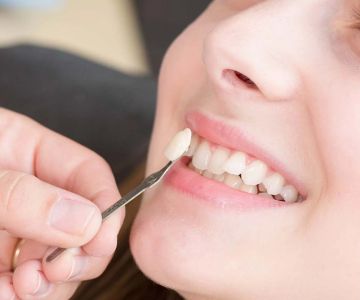
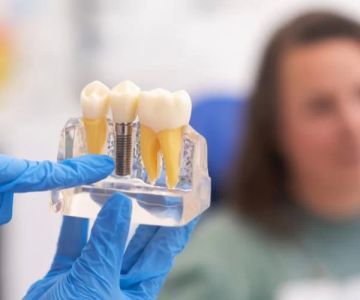
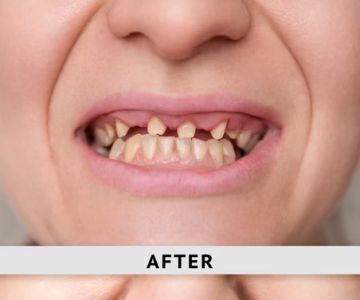

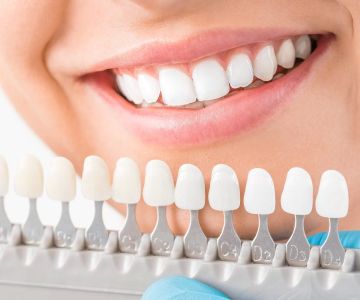
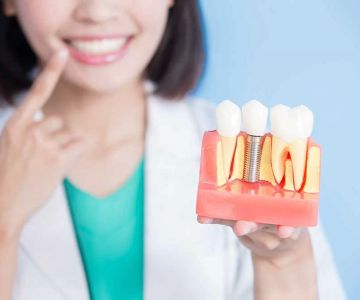
 That Broadway Smile5.0 (1689 review)
That Broadway Smile5.0 (1689 review) East Greenwich Family Dental | Dentist in East Greenwich RI | DMD4.0 (182 review)
East Greenwich Family Dental | Dentist in East Greenwich RI | DMD4.0 (182 review) Dr. Albert R. Arcand, DMD4.0 (22 review)
Dr. Albert R. Arcand, DMD4.0 (22 review) Dental Implants and Periodontology of Massapequa4.0 (198 review)
Dental Implants and Periodontology of Massapequa4.0 (198 review) Brick Dental Studio4.0 (101 review)
Brick Dental Studio4.0 (101 review) Claire L. Ho, DDS5.0 (5 review)
Claire L. Ho, DDS5.0 (5 review) The Importance of Oral Health Education During Pregnancy for a Healthy Pregnancy
The Importance of Oral Health Education During Pregnancy for a Healthy Pregnancy Best Tips for Brushing Your Teeth Properly for Healthy Gums: Essential Techniques for Oral Health
Best Tips for Brushing Your Teeth Properly for Healthy Gums: Essential Techniques for Oral Health Why Skipping Dental Checkups Can Lead to Bigger Oral Health Problems
Why Skipping Dental Checkups Can Lead to Bigger Oral Health Problems Advantages of Porcelain Dental Restorations
Advantages of Porcelain Dental Restorations How Can Diabetes Cause Tooth and Gum Problems? Preventing and Managing Oral Health Issues
How Can Diabetes Cause Tooth and Gum Problems? Preventing and Managing Oral Health Issues Healthy Habits for Promoting Good Oral Health and Hygiene: Tips for a Healthy Smile
Healthy Habits for Promoting Good Oral Health and Hygiene: Tips for a Healthy Smile